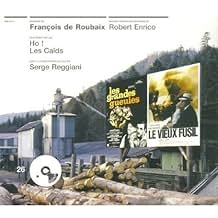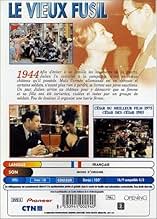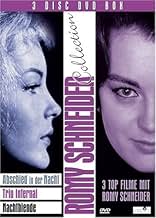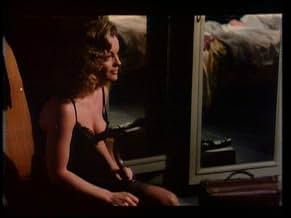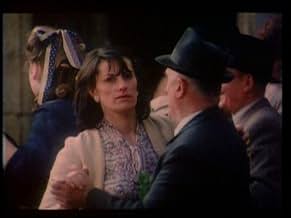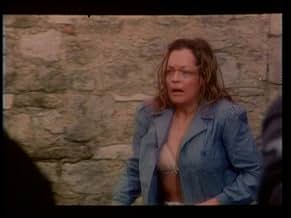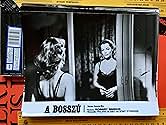AVALIAÇÃO DA IMDb
7,5/10
5,2 mil
SUA AVALIAÇÃO
Durante a Segunda Guerra Mundial, um pacífico cirurgião francês é forçado a exterminar nazistas impiedosamente por causa das atrocidades que eles cometeram.Durante a Segunda Guerra Mundial, um pacífico cirurgião francês é forçado a exterminar nazistas impiedosamente por causa das atrocidades que eles cometeram.Durante a Segunda Guerra Mundial, um pacífico cirurgião francês é forçado a exterminar nazistas impiedosamente por causa das atrocidades que eles cometeram.
- Direção
- Roteiristas
- Artistas
- Prêmios
- 4 vitórias e 6 indicações no total
Avaliações em destaque
The story telling is utterly convincing, and because of the flashback technique, we feel the emotion of the main character (Julien) as the drama unfolds. The suspense is keen and mounting. The viewer keeps asking with increasing intensity: is this what I would do in Julien's position? His mistakes make us groan, his successes make us cheer. His pathos makes us cry.
On June 10th 1944, less than two weeks before the Normandy landings, almost the entire population of the village of Oradour-sur-Glane was slaughtered by members of a Waffen SS division. That atrocity is not reconstructed here but forms the basis of Robert Enrico's film.
Surgeon Julien Dandieu arrives at the village where he grew up, the castle of which he happens to own, only to find a scene of mass carnage in which his beloved wife and daughter have perished. His unbearable grief soon gives way to a natural, all-consuming hatred for the Nazi perpetrators who have taken over the castle. Taking advantage of his intimate knowledge of the castle with all its hidden passages and armed only with a double-barrelled shotgun used for hunting wild boar, he sets about stalking his human prey and exacting retribution. The method by which he disposes of the highest ranking SS officer is singularly appropriate.
Suffice to say this is a grim, harrowing and violent film, at times graphically so but has great tension, momentum and first class editing.
It is in effect an early 'vigilante' movie but is well balanced by being a love story also. The use of flashbacks to show the domestic bliss of Dandieu, his wife Clara and their daughter is dramatically very effective.
As Clara the wondrous Romy Schneider once again touches the heartstrings.
The film proved extremely popular with French audiences who had never seen anything like it before. Despite its merits I am not certain that it deserved to win the César for Best Picture although its emotive subject matter no doubt helped and the competition that year was not that stiff. I also found the jaunty title music of Enrico's preferred composer Francois de Roubaix rather incongruous. Pleased to say that the superlative Philippe Noiret in his second collaboration with this director, was awarded the first of his two Césars and a Donatello for his riveting performance as Dandieu. Also of note are Jean Bouise giving his customary understated performance as a family friend and the excellent Joachim Hansen who has succeeded in making the SS officer more than just a one-dimensional nasty Nazi.
This piece, which established Enrico as a director, mixes the genres of war, action, romance and it must be said, exploitation.
We must not lose track of the horrific historical event that inspired the film which acts as a distressing reminder of the barbaric cruelty to which humans can sink.
Surgeon Julien Dandieu arrives at the village where he grew up, the castle of which he happens to own, only to find a scene of mass carnage in which his beloved wife and daughter have perished. His unbearable grief soon gives way to a natural, all-consuming hatred for the Nazi perpetrators who have taken over the castle. Taking advantage of his intimate knowledge of the castle with all its hidden passages and armed only with a double-barrelled shotgun used for hunting wild boar, he sets about stalking his human prey and exacting retribution. The method by which he disposes of the highest ranking SS officer is singularly appropriate.
Suffice to say this is a grim, harrowing and violent film, at times graphically so but has great tension, momentum and first class editing.
It is in effect an early 'vigilante' movie but is well balanced by being a love story also. The use of flashbacks to show the domestic bliss of Dandieu, his wife Clara and their daughter is dramatically very effective.
As Clara the wondrous Romy Schneider once again touches the heartstrings.
The film proved extremely popular with French audiences who had never seen anything like it before. Despite its merits I am not certain that it deserved to win the César for Best Picture although its emotive subject matter no doubt helped and the competition that year was not that stiff. I also found the jaunty title music of Enrico's preferred composer Francois de Roubaix rather incongruous. Pleased to say that the superlative Philippe Noiret in his second collaboration with this director, was awarded the first of his two Césars and a Donatello for his riveting performance as Dandieu. Also of note are Jean Bouise giving his customary understated performance as a family friend and the excellent Joachim Hansen who has succeeded in making the SS officer more than just a one-dimensional nasty Nazi.
This piece, which established Enrico as a director, mixes the genres of war, action, romance and it must be said, exploitation.
We must not lose track of the horrific historical event that inspired the film which acts as a distressing reminder of the barbaric cruelty to which humans can sink.
Sadly the reviewer did not watch properly the movie : 1. Noiret/Dandieu does not arrive "just in time" to see his family killed : he imagineswhat has happened (perhaps one or two days before; unclear).
2. The girl is his daughter; not Romy/Clara's I did not plan to write more but I am forced to write at least 1O lines (silly rule).
This is a movie I first saw when I was 12 or 13.
It made a lasting impression on me.
I love its pace, the acting (Noiret in particular), Romy's beauty, charm and accent.
And the music by François de Roubaix.
2. The girl is his daughter; not Romy/Clara's I did not plan to write more but I am forced to write at least 1O lines (silly rule).
This is a movie I first saw when I was 12 or 13.
It made a lasting impression on me.
I love its pace, the acting (Noiret in particular), Romy's beauty, charm and accent.
And the music by François de Roubaix.
10vrapp
> This is where we may wonder why it has taken so much to rouse this peaceful man;
Everybody has his own threshold of awakening; and this film is actually the story of awakening - this is why the whole first part showing his peaceful life, even during the war, up until he is led to his threshold, and so the contrast between that and merciful killer that he becomes, becomes even more powerful.
> The next question we find ourselves asking is why he is content to go up against men armed with pistols, rifles,machine guns, grenades and flame-throwers with only a shotgun rather than picking off one man and appropriating his weaponry.
The best weapon is the weapon you are used to, the weapon you trust. Plus, this old gun together with the old castle and their old owner, become one collective weapon against the invaders. Not wise to take one piece out.
Everybody has his own threshold of awakening; and this film is actually the story of awakening - this is why the whole first part showing his peaceful life, even during the war, up until he is led to his threshold, and so the contrast between that and merciful killer that he becomes, becomes even more powerful.
> The next question we find ourselves asking is why he is content to go up against men armed with pistols, rifles,machine guns, grenades and flame-throwers with only a shotgun rather than picking off one man and appropriating his weaponry.
The best weapon is the weapon you are used to, the weapon you trust. Plus, this old gun together with the old castle and their old owner, become one collective weapon against the invaders. Not wise to take one piece out.
Você sabia?
- CuriosidadesInspired by the Oradour tragedy.
- Erros de gravaçãoClose to the end, when Julien burned the whole room together with the SS Officer, a crew member with fire extinguisher can be seen on the right side of the scene.
- Versões alternativasWest German theatrical version was changed to show German soldiers in a less inhuman way. Some scenes were deleted, others were substituted. The East German version was unchanged.
- ConexõesFeatured in Conversation avec Romy Schneider (2018)
Principais escolhas
Faça login para avaliar e ver a lista de recomendações personalizadas
- How long is The Old Gun?Fornecido pela Alexa
Detalhes
- Data de lançamento
- Países de origem
- Centrais de atendimento oficiais
- Idiomas
- Também conhecido como
- The Old Gun
- Locações de filme
- Bruniquel, Tarn-et-Garonne, França(Castle courtyard, house, cliff)
- Empresas de produção
- Consulte mais créditos da empresa na IMDbPro
Bilheteria
- Faturamento bruto mundial
- US$ 2.225
- Tempo de duração1 hora 43 minutos
- Mixagem de som
- Proporção
- 1.66 : 1
Contribua para esta página
Sugerir uma alteração ou adicionar conteúdo ausente

![Assistir a Bande-annonce [OV]](https://m.media-amazon.com/images/M/MV5BNDcwZGU4YTgtMDA2ZC00ZDM0LTg5M2EtYWE4ZjcwMDk3YWI1XkEyXkFqcGdeQXRyYW5zY29kZS13b3JrZmxvdw@@._V1_QL75_UX500_CR0)
